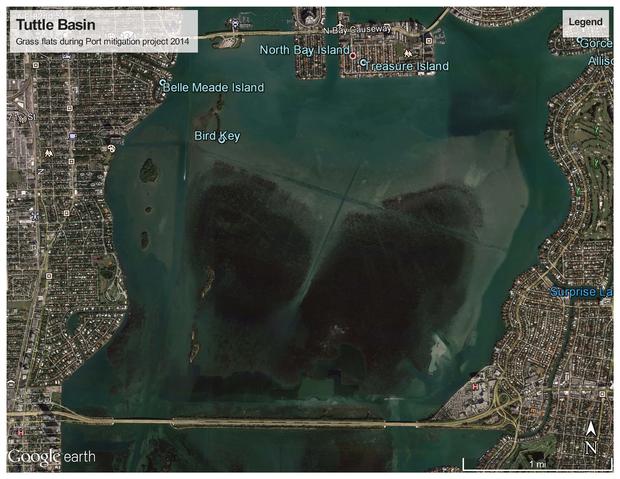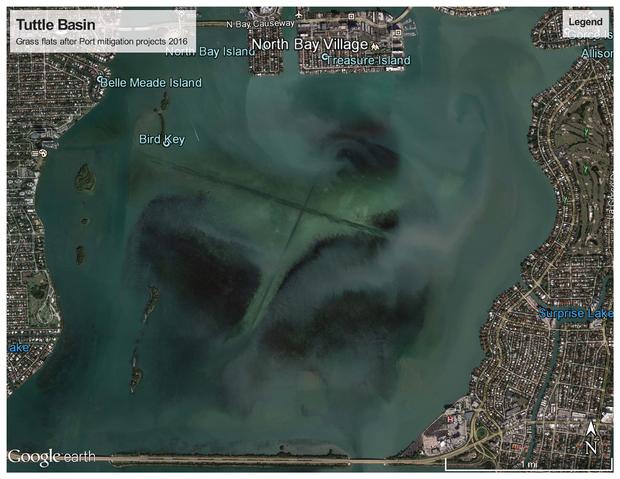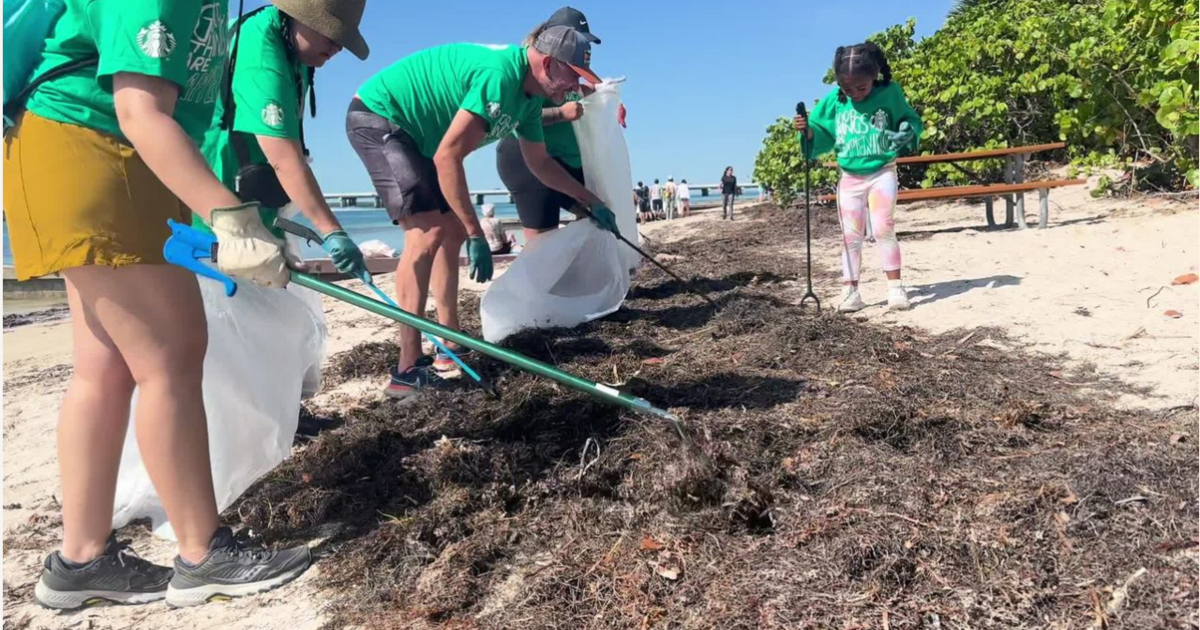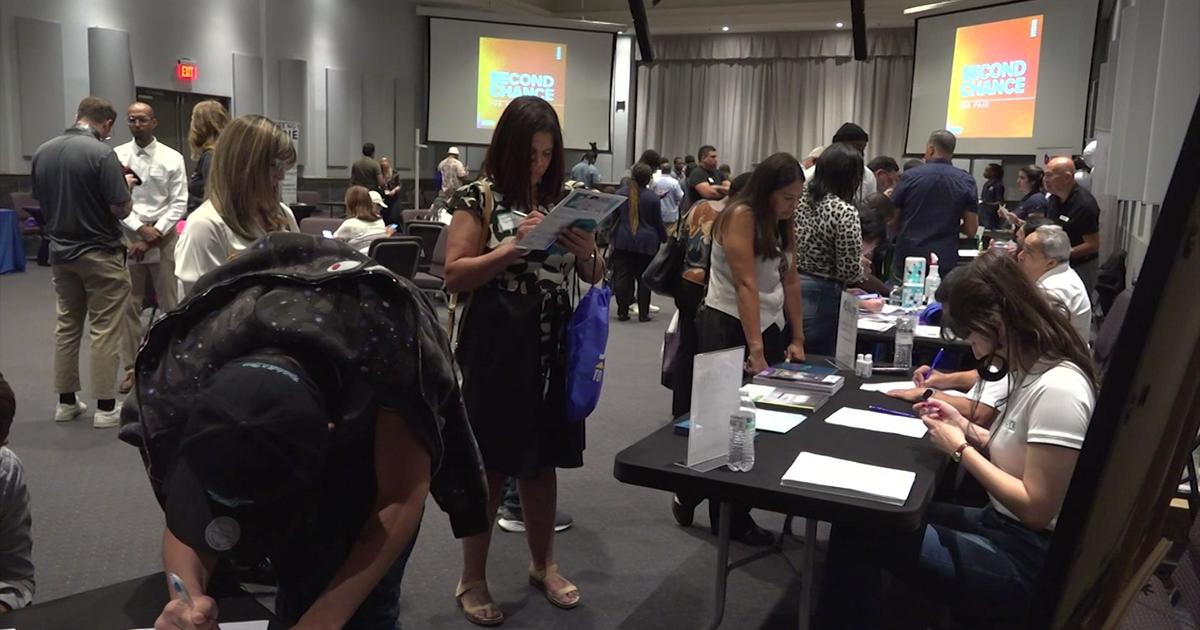Decline Of Biscayne Bay's Sea Grass Affecting Marine Life
Follow CBSMIAMI.COM: Facebook | Twitter
MIAMI(CBSMiami) -- What was once the richest part of Biscayne Bay's biomass with abundant fish, crab, and sea grass for many years is now dying.
Looking across the surface it may seem like business as usual but below what was once a vast bed of healthy sea grass does not nearly resemble what it looked like just a few years ago.
Captain Dan Kipnis does not claim to be a scientist, but is an advocate for the bay. He has witnessed first-hand the dramatic loss of sea grass across the entire bay.
Studies of the plants underwater and even satellite images show that close to 60 percent of the sea grass bed has vanished in just the past few years.
As the sea grass beds decline, so does the water quality.
"Without the sea grass it is not going to be as clear," he tells Meteorologist Dave Warren. "Sediment goes everywhere and suffocates everything. Thirty years ago it was crystal clear, now it's a mud bath."
The issue could not be what is going on underwater, but around the bay itself. As more and more water enters the bay from the land around it, then so does the material on the ground itself. This could include pollutants, lawn fertilizer, even raw sewage in some areas. These added elements can have a real impact on the sea grass health.
As more municipalities around the bay begin pumping more and more water into the bay, it could pose an even bigger problem.
"That takes everything that's been on land and puts it back into water," says Dan.
The big question will be what happens next?
He has reached out to the scientific community and individuals who have been monitoring the bay for years about the growing problem.
"We're meeting with them to see if there is a plan we can put together to stop what's going on and try to reverse it," Kipnis told Warren. Unfortunately, as of now, we are not ready to act and likely more money will be needed to continue the testing."





